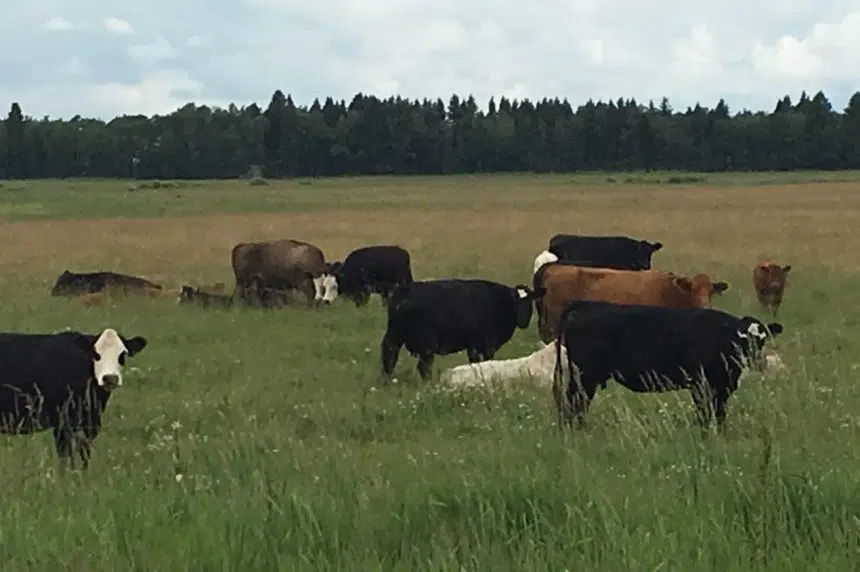Saskatchewan’s beef industry says the province’s drought-stricken producers need more help.
Recent weather has depleted the feed supply and dried up watering holes for cattle, says Arnold Balicki, chair of the Saskatchewan Cattlemen’s Association.
Balicki welcomed recent changes by the Saskatchewan Crop Insurance Corporation to help grain farmers salvage their cereals and pulses for livestock feed. However, he says there’s one more “stumbling block.” That is, those farmers still have outstanding commitments to deliver grain.
“These crop producers are tied up in contracts, and somehow or another we have to force their hand to allow those producers to get out of those contracts or are move them into next year,” Balicki said.
“Free up those acres so that livestock producers can get in there and sell that feed.”
Producers forced to sell off their herds are also awaiting a decision from the federal government regarding their eligibility for livestock tax deferral. Balicki says the government has only made ranchers eligible in some parts of the province while he’s calling for all of Saskatchewan to qualify.
He says ranchers are facing the prospect of a fire sale, where they might only get 25 cents per pound of beef.
“You can be sure that the burger in the stores will still be five and six dollars. They don’t seem to reduce that,” Balicki said.
“That’s going to be catastrophic for the beef industry. We’re hearing upwards of 40 per cent, maybe 50 per cent of the cow herd is going to be gone.”
Selling the herd, or parts of it would cost producers for years. “Now they won’t have that calf crop and it’s going to be a huge economic impact to the province of Saskatchewan and Canada,” Balicki said.
“We export so much product and if we don’t have the exports, that certainly has to be a bit painful for the economy of the province and Canada as a whole.”
Balicki says what producers need is cash to help purchase feed and secure water supply.
“We can all make it work if there was a cash infusion for these producers. And everyone has to realize that it’s for the good of the economy, it’s for the good of the province.”







